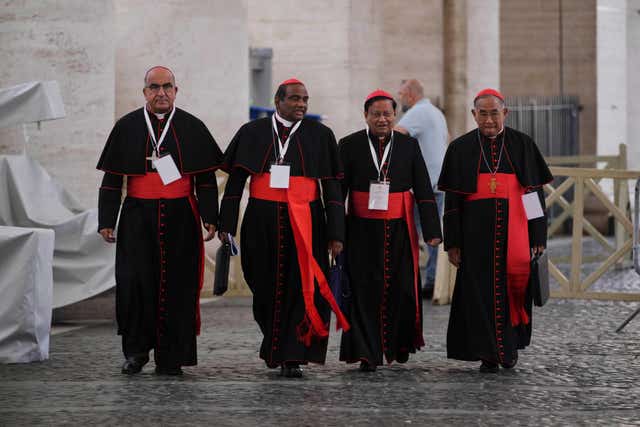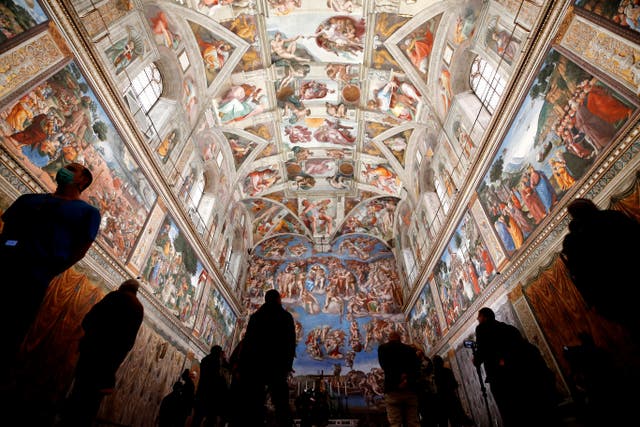Vatican workers install Sistine Chapel stove ahead of conclave
Fire crews were also seen on the chapel roof attaching the chimney from which smoke signals will indicate whether a pope has been elected.

Vatican workers have installed the simple stove in the Sistine Chapel where ballots will be burned during the upcoming conclave to elect a new pope.
The Holy See released a video on Saturday of the preparations for the May 7 conclave, which included installing the stove and a false floor in the frescoed Sistine Chapel to make it even.
The footage also showed workers lining up simple wooden tables where the cardinals will sit and cast their votes on Wednesday, and a ramp leading to the main seating area for any cardinal in a wheelchair.

The engineer overseeing the works, Silvio Screpanti, said workers were also deactivating all the electronic sensors that have been installed in the Sistine Chapel in recent years to help protect its precious frescoes.
Such work is part of the technological blackout that accompanies a conclave to prevent bugging of the secret deliberations and ensure the cardinals have no contact with the outside world.
In the coming days, all the windows of the Apostolic Palace facing the Sistine Chapel will be darkened.
On the eve of the first vote, some 80 seals will be erected around the perimeter of the space where the cardinals will live — between their residence and the Sistine Chapel — to keep outsiders away, he said in comments posted on the website of the Vatican city state.
On Friday, fire crews were seen on the chapel roof attaching the chimney from which smoke signals will indicate whether a pope has been elected.

The preparations are all leading up to the solemn pageantry of the start of the conclave to elect a successor to Pope Francis, the first Latin American pope, who died on April 21 aged 88.
Wednesday morning begins with a Mass in St Peter’s Basilica celebrated by the dean of the College of Cardinals, Cardinal Giovanni Battista Re, after which the cardinal electors are cut off from the rest of the world.
In the afternoon, they will process into the Sistine Chapel, hear a meditation and take their oaths before casting their first ballots.
As of now, 133 cardinals are expected to take part in the conclave. If no candidate reaches the necessary two-thirds majority, or 89 votes, on the first ballot, the papers will be burned and black smoke will indicate to the world that no pope was elected.
The cardinals will go back to their Vatican residence for the night and return to the Sistine Chapel on Thursday morning to conduct two votes in the morning, two in the afternoon, until a winner is found.
After every two rounds of voting, the ballots are burned in the stove.
If no pope is chosen, the ballots are mixed with cartridges containing potassium perchlorate, anthracene — a component of coal tar — and sulphur to produce black smoke out the chimney. If there is a winner, the ballots are mixed with potassium chlorate, lactose and chloroform resin to produce the white smoke.
The white smoke came out of the chimney on the fifth ballot on March 13 2013, and Cardinal Jorge Mario Bergoglio was introduced to the world as Pope Francis a short time later from the loggia of St Peter’s Basilica.
The preparations are under way as the cardinals meet privately in more informal sessions to discuss the needs of the Catholic Church going forward and the type of pope who can lead it.





